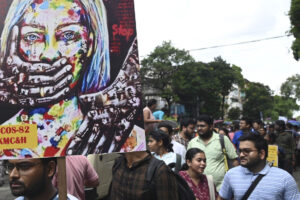Every April 7th, World Health Day is celebrated. This year, the theme ‘My Health, My Right’ highlights the importance of equal access to high-quality healthcare.
Updated On – 7 April 2024, 02:56 PM

New Delhi: India has in the recent years effectively eradicated polio and made some progress in reducing maternal and infant mortality rates, but the country continues to battle non-communicable diseases, respiratory diseases and mental health issues, according to experts on on Sunday.
World Health Day is marked every year on April 7. This year’s theme ‘My Health, My Right’ focuses on equal access to quality health care.
“Key health issues faced by Indians include high incidence of non-communicable diseases like cardiovascular diseases, diabetes, obesity and hypertension. Respiratory infections and malnutrition are also increasing,” J P S Sawhney, Chairperson, Department of Cardiology, Sir Ganga Ram Hospital, told IANS.
“Diseases both infective like tuberculosis, malaria, hepatitis etc are in abundance and non-infective like diabetes with its complications, heart diseases, lung diseases like Chronic obstructive pulmonary disease (COPD), and bronchial asthma are on another spectrum,” added Ajay Agarwal, Director-Internal Medicine, Fortis Hospital, Noida.
Common risk factors contributing to many of these include poor diet, physical inactivity, smoking, alcohol consumption, environmental pollution and economic disparities.
The experts also lamented the paucity of healthcare facilities, access to quality healthcare, regional disparities and inadequate awareness that contribute to these challenges.
Rajeev Gupta, Director – Internal Medicine at the CK Birla Hospital, Delhi, noted a significant burden of infectious diseases in the country, which include HIV, tuberculosis, malaria, vector-borne diseases like dengue fever and encephalitis, and gastrointestinal and liver diseases.
“To address these challenges, India urgently needs to increase its budgetary allocation for healthcare,” Gupta told IANS.
On the other hand, the experts noted that “the past decade has brought remarkable changes to India’s healthcare landscape”, with an increase in life expectancy, polio eradication, and most recently eliminated filariasis or Kala-azar.
“India has made significant progress in reducing infant mortality through improved delivery practices, universal immunisation, better sanitation, mid-day meals and food fortification.
“However, there’s still room for improvement. The increasing use of artificial intelligence and digital health technologies holds promise for further enhancing public health,” Dr Gupta added.




